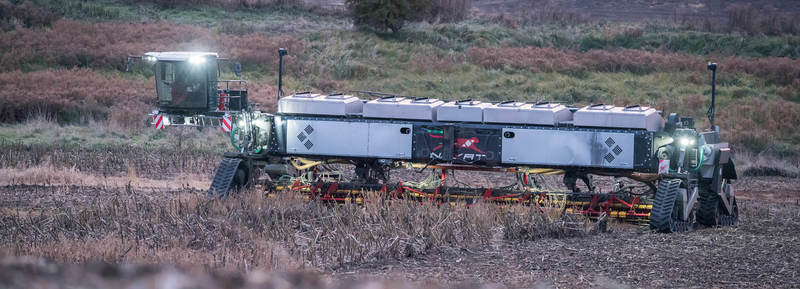
Innovative Technology in Agriculture
The world population is predicted to be 9.9 billion people by 2050, which would be a 2.1 billion increase from the 2020 World Population Data Sheet. There is currently 13,003 million hectares of land area on the globe and 4,889 million hectares of the 13,003 mil. ha. are considered agricultural area. That number is estimated to decrease as well due to more of the land area needed for living space for the additional amount of people. The global food demand is expected to increase by 50% by 2050. So, people in the agriculture industry have a challenge that they have been facing, and will continue to face for years. People in agriculture have to figure out how to feed more people with less space to grow. On top of that, they have to find ways to farm in sustainable ways to preserve that agricultural land that they do have to work with. This is not an easy feat.
However, many agricultural companies have made large strides in their technology to help combat the challenges that agriculture faces. Older companies have found solutions before, but understand that they have to keep finding new solutions as technology adapts. New companies have come into play, and they have the same goal of finding new solutions as the older companies do.
Two of the companies with new technology in the works are NEXAT GmbH and John Deere. NEXAT was founded in 2017 and is “dedicated exclusively to the development, manufacture and sale of the new plant production process”, which they claim on their “About Us” page. NEXAT’s system is an all-in-one machine. The premise behind their system is, according to their website, “one for all - all for one”. The machine is a wide vehicle with interchangeable implements to perform all aspects that you need in farming. The system drives wide in the field, and slim on the road. The machine can perform tillage, sowing, plant protection, and harvesting tasks with attachments to the main unit. The attachments can be changed by one person in under 10 minutes, but NEXAT has plans to fully automate the process. The system does less than 5% of track share in the field, leaving 95% of the field untraveled by the machine. On top of that, the system weighs 40% less than typical equipment used. The machine is electrically driven with two generators powered by two independent diesel engines. The system is prepared to be powered by green hydrogen fuel cells in the future. Although this system sounds too good to be true, it has been in use for several years on real farms and it is successful. NEXAT stands for ‘Next Generation Agriculture Technology’, and this machine truly is the technology of the future for agriculture. For more information, explore www.nexat.de/en/.
In January of this year, John Deere announced that they have been working on a fully autonomous tractor that is ready for large-scale production. John Deere stated, “The machine combines Deere’s 8R tractor, TruSet-enabled chisel plow, GPS guidance system, and new advanced technologies.” The company created the tractor with the purpose to help support the rising world population. The tractor has six pairs of 360-degree cameras that help detect obstacles and help the tractor check its location. The position accuracy of the location check gives the location within less than an inch of accuracy. To use the machine, farmers need to transport it to a field to prepare it for autonomous operation. While the machine is doing its job in the field, the farmer can leave the field and monitor the tractor’s status from their mobile device. This allows farmer productivity to boost and gives the farmer valuable time to accomplish more. Farmers check the productivity on their mobile device through John Deere Operations Center Mobile, which also provides the farmer access to live video, images, data, and metrics. Farmers can adjust depth, speed, and more! If any issues arise, farmers are notified automatically. This tractor will be available to farmers later this calendar year.
NEXAT GmbH and John Deere are only two of the many companies providing the future of agriculture to the industry. It will be exciting to see how farmers and agricultural companies continue to adapt to challenges that they face.